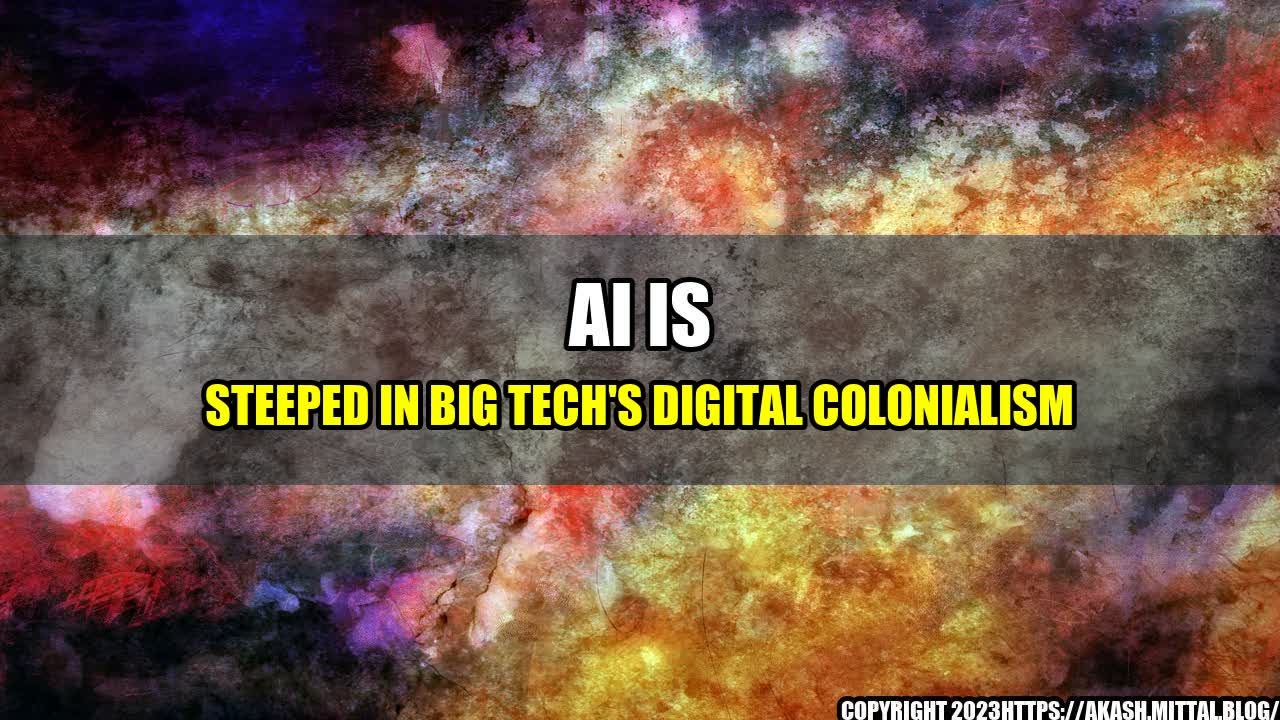
Artificial intelligence (AI) has been touted as the solution to many of the world's problems, from climate change to healthcare. However, there is a darker side to AI that is often overlooked: its role in perpetuating digital colonialism.
Digital colonialism refers to the domination of developing nations by Western tech giants, who use their access to big data and AI to exploit these countries for profit.
One example of this is the case of Facebook's Free Basics program, which was launched in India in 2015 with the aim of providing free access to basic internet services. However, the program was criticized for violating net neutrality and favoring content from Facebook and its partners. It was eventually banned by the Indian government in 2016.
This is just one example of how Big Tech has been accused of using its power to pursue its own interests at the expense of developing nations.
AI is an even more potent tool for digital colonialism, as it allows Big Tech to extract even more value from developing nations. By gaining access to vast amounts of data from these countries, Western tech giants can train their algorithms more effectively and create new products and services that cater to the needs of these markets.
However, this also means that these companies are able to control the narrative around AI development and its impact on society. Developing countries are often left out of the conversation and have little say in how AI is developed and deployed in their communities.
To prevent AI from becoming a tool for digital colonialism, there are several steps that need to be taken:
By taking these steps, we can ensure that AI is used for the benefit of all humanity, and not just for the profit of a few Big Tech companies.
AI has the potential to revolutionize the world and solve many of its problems. However, we need to be aware of its darker side and its role in perpetuating digital colonialism. By taking steps to increase transparency, empower developing countries, and foster collaboration, we can ensure that AI is used for the greater good of humanity.
Hashtags: #AI #digitalcolonialism #BigTech #transparency #accountability #empowerment #collaboration
Category: Technology, Ethics
Curated by Team Akash.Mittal.Blog
Share on Twitter Share on LinkedIn